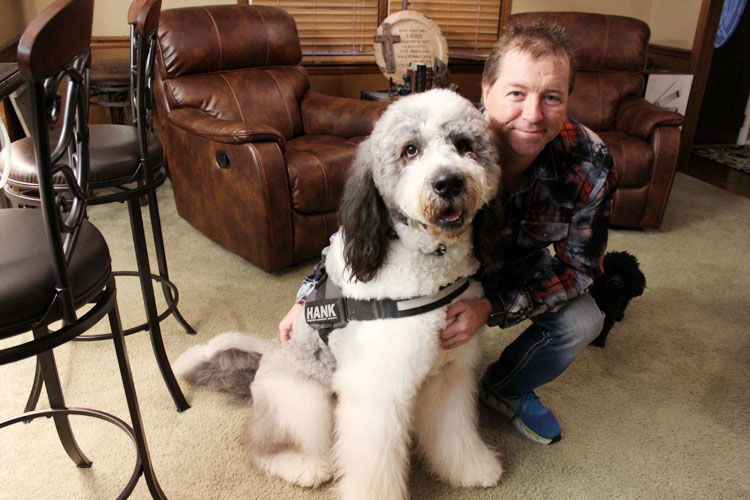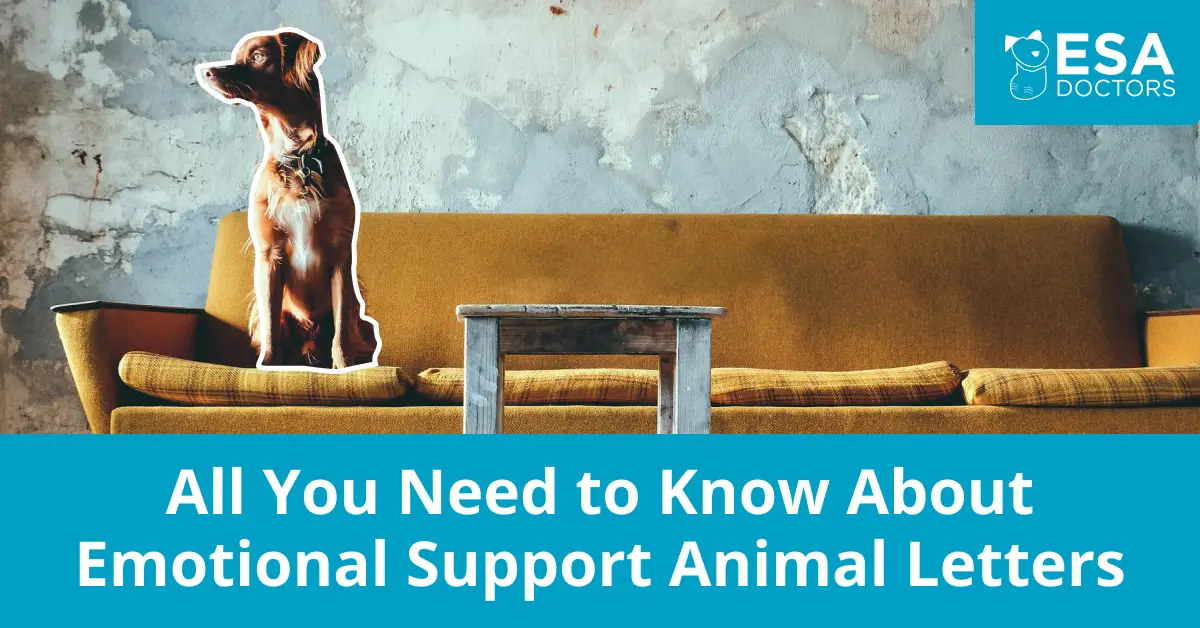The world is now (more than ever) realizing the role a furry companion can play in the mental health of its handler. People are naturally drawn towards animals because of the unconditional love they offer – no judgment, no criticism – just good old-fashioned support.
If you live in South Carolina and are interested in learning more about Emotional Support Animals, this article is for you.
Emotional Support Animal or Service Animal?

According to Federal law, the Emotional Support Animal is not considered a “Service Animal.”
A Service Animal is traditionally a canine species and is trained to perform a specific task for a physically challenged individual. These tasks can include;
- Guiding
- Sensory help
- Retrieving items such as medications
- Alerting to oncoming conditions or important sounds
- Pulling a wheelchair
The Emotional Support Animal is not considered a Service Animal because it can be of any species, and it is not trained to do anything in particular, but to provide comfort and support. The ESA is used in the treatment of:
- Anxiety
- Stress
- Depression
- PTSD
- Phobias
If you are interested in working with an LHCP in South Carolina, click on the button below and we will be happy to support you.
Emotional Support Animals at the University of South Carolina
If you require the assistance of an ESA at the University of South Carolina, you are in luck because they have policies in place.
According to their website:
“Assistance Animal may live with a student in University Housing and must be kept within the residential setting in which the student lives. Assistance Animals may not accompany the student outside of the residential setting, and are not allowed in any other buildings on University property, nor are they allowed in other controlled spaces on campus.”
Their policy also states that the student must seek permission before bringing the ESA to the college campus. Each request will be reviewed on a case-by-case basis.
You will need an ESA letter when seeking permission for your Emotional Support Animal, and most universities will require extensive additional documentation. The request for extensive additional documentation has recently been deemed unnecessary by Fair Housing.
How to Get an Emotional Support Animal in South Carolina
If you are currently suffering from a mental disability such as depression, PTSD, panic attacks, etc., and receive a recommendation letter from a licensed mental health professional, your pet can become an Emotional Support Animal.

How to get an ESA in South Carolina:
- Recognize your need for an ESA
You can ask yourself questions such as, “Do I think an animal would help me?” - Connect with a licensed therapist/doctor
You can work with your own therapist or doctor. If you do not have access to one, you may contact ESA Doctors for help. - Communicate your need for an ESA
Share your experience with your therapist so they can understand where you are at. - Request your document(s)
Landlords and airlines are allowed to request documentation showing your need for an ESA. If you require one, this is the right time to ask for an ESA letter. - Utilize your ESA letter
Let your landlord and airline know you will be requesting reasonable accommodations for your ESA.
An ESA letter for South Carolina must include:
- Licensed healthcare professional’s (LHCP) license type, number, the state and date it was issued.
- LHCP’s reasons for prescribing the ESA
- LHCP’s signature
- The letter must be written on the LHCP’s letterhead
- The letter is only valid for one year after the issued date
When utilizing your ESA letter, be aware that some landlords and airlines may request additional forms for your ESA to be submitted in addition to your ESA letter.
See if you qualify for an ESA Letter by working with a South Carolina LHCP
Click here to get started on qualifying for your ESA letter.
Where can you adopt an ESA in South Carolina?
If you need an Emotional Support Animal, adopting is the preferred choice. There are a number of shelters in South Carolina that excel in caring for the animals. Adopting an animal from one of the agencies below will certainly be beneficial to everyone involved:

All4Paws – On a mission to saving as many homeless, abandoned, and threatened cats and dogs as possible, All4Paws has taken in thousands of animals since 2012. Their passion extends to rescuing animals from kill shelters and closing down puppy mills.

Carolina Poodle Rescue – This no-kill shelter offers a home for poodles, poodle mixes, and other needy small dogs. With room for 150 animals, they can offer permanent sanctuary or help to rehome the poodles into a new loving family.

Richardson Rescue – This non-profit animal adoption agency is dedicated to finding forever homes for all pets they take in. In addition, they offer owners pet care education and provide a low-cost spay/neuter program.

SPCA Albrecht Center for Animal Welfare – Established in 1935, this private, non-profit organization prides itself on finding homes for 96% of all the animals that come into their care.
South Carolina Cracking Down on ESA’s Posing as Service Animals
A panel of South Carolina senators is getting set to take a second look at legislation to address the problem, of “fraudulent” Service Animals.
If passed, this legislation will allow charges to be brought against owners who misrepresent their pet pig, for instance, as a service animal.
Senators agree; however, that more work is needed to be done on the proposal before it is passed to the full committee.
The South Carolina Apartment Association states a new law is necessary to curb animal owners from abusing loopholes in current laws that allow service and emotional support animals in public areas.
Currently, the Americans with Disabilities Act does allow public places to turn animals away if they are unruly or not housebroken. In South Carolina, civil penalties also exist for any damage done by a service animal.
State Sen. Scott Talley’s proposal would slap a misdemeanor charge on anyone who intentionally misrepresents an animal as a service animal or one in training.
This would include a first offense carrying a fine of $350 to $1,000. A second offense could cost from $600 to $1,000. A third or subsequent offense would carry a fine of $1,000 to $5,000 and up to 10 hours of community service.
Emotional Support Dog from South Carolina in the News

Emotional Support Animals come in all shapes and sizes, like the example of Hank, the ESA of a family in Greensboro shows. Mr. Roberts adopted this large Saint Berdoodle — which is half Saint Bernard and half Standard Poodle — to help his wife deal with depression. As it turns out, the big dog has a big heart and rose to his potential in no time.
But it didn’t end there. Hank’s love is so large, he also acts as a therapy dog, visiting local hospice patients. (YesWeekly.com)
You & Your ESA in South Carolina
An Emotional Support Animal can be a helpful addition to your doctor-prescribed medical treatment plan. If you have been approved for an ESA, be sure to find an appropriate species, one that is suitable for airline travel and apartment living (if this is needed).
You will also want to follow the Federal laws as they apply to the Emotional Support Animals, knowing they are not considered a full Service Animals and therefore are not allowed into all public areas. Following these rules will save you a lot of time and hassle down the road.
Qualify for an ESA Letter Today
Get the Love and Support you deserve!






What exactly IS the SC agency’s name & address that mental health providers send their letters for an ESA certification? Where do care providers send their letters for patients?
There is no agency of that sort. An ESA letter is given to the client by the licensed healthcare professional, who then submits it directly to their landlord.